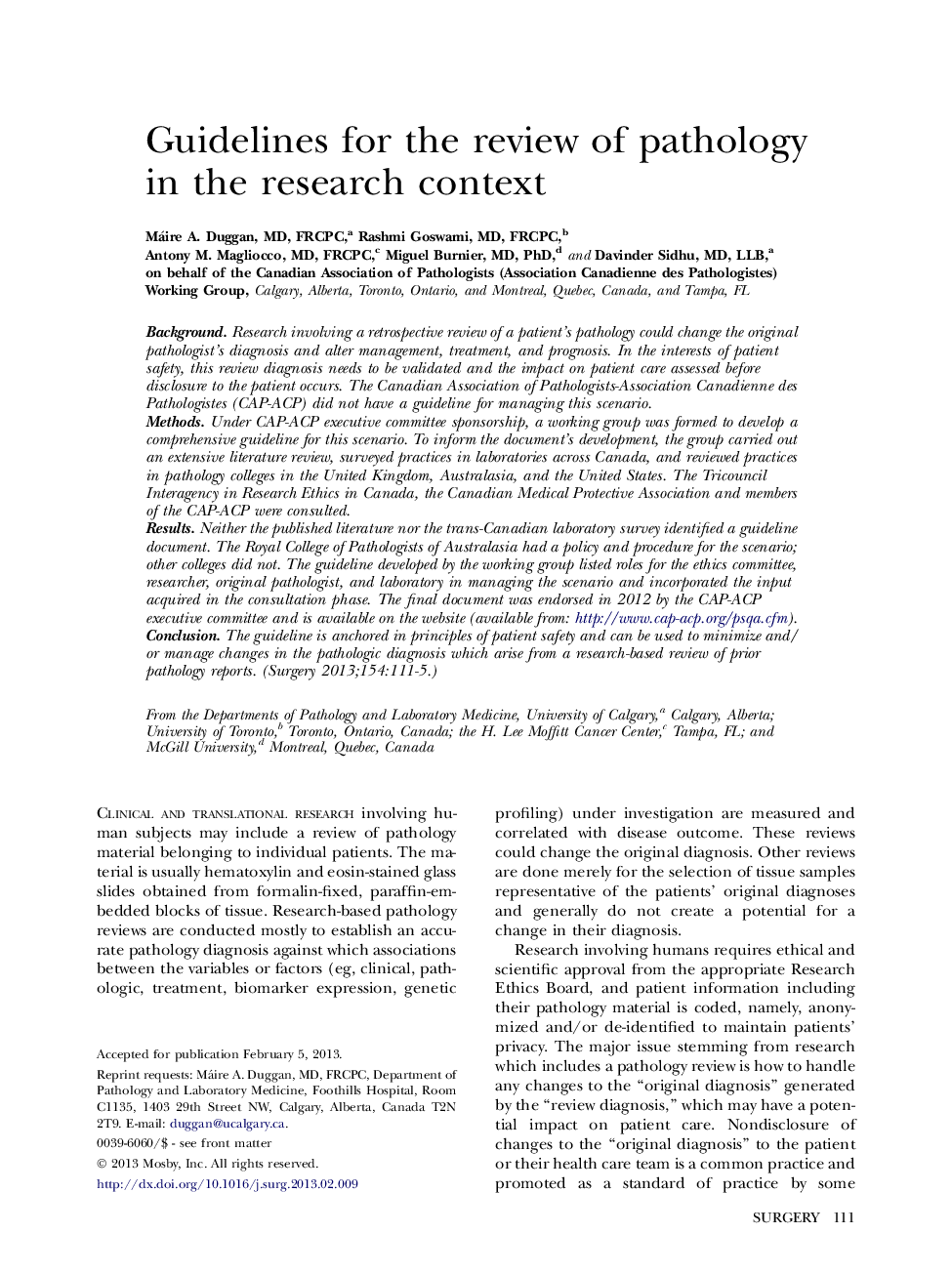| Article ID | Journal | Published Year | Pages | File Type |
|---|---|---|---|---|
| 4307354 | Surgery | 2013 | 5 Pages |
BackgroundResearch involving a retrospective review of a patient's pathology could change the original pathologist's diagnosis and alter management, treatment, and prognosis. In the interests of patient safety, this review diagnosis needs to be validated and the impact on patient care assessed before disclosure to the patient occurs. The Canadian Association of Pathologists-Association Canadienne des Pathologistes (CAP-ACP) did not have a guideline for managing this scenario.MethodsUnder CAP-ACP executive committee sponsorship, a working group was formed to develop a comprehensive guideline for this scenario. To inform the document's development, the group carried out an extensive literature review, surveyed practices in laboratories across Canada, and reviewed practices in pathology colleges in the United Kingdom, Australasia, and the United States. The Tricouncil Interagency in Research Ethics in Canada, the Canadian Medical Protective Association and members of the CAP-ACP were consulted.ResultsNeither the published literature nor the trans-Canadian laboratory survey identified a guideline document. The Royal College of Pathologists of Australasia had a policy and procedure for the scenario; other colleges did not. The guideline developed by the working group listed roles for the ethics committee, researcher, original pathologist, and laboratory in managing the scenario and incorporated the input acquired in the consultation phase. The final document was endorsed in 2012 by the CAP-ACP executive committee and is available on the website (available from: http://www.cap-acp.org/psqa.cfm).ConclusionThe guideline is anchored in principles of patient safety and can be used to minimize and/or manage changes in the pathologic diagnosis which arise from a research-based review of prior pathology reports.
